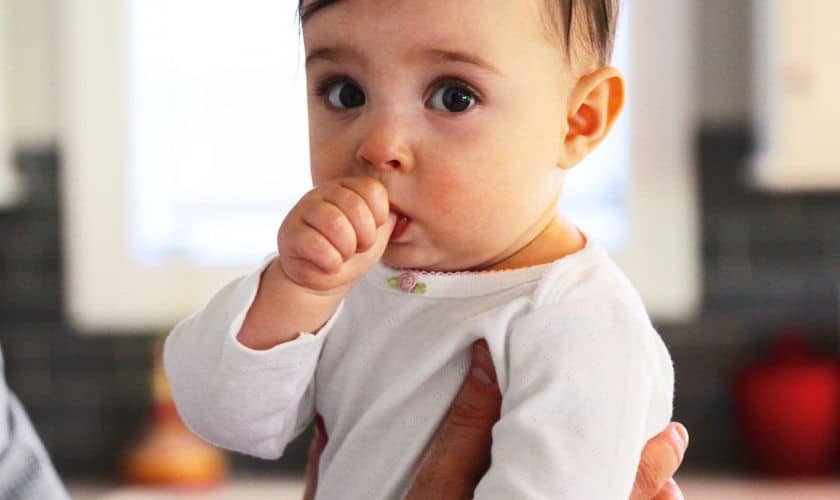If you’re a parent or guardian, you have probably noticed that many children rely on thumb sucking and pacifiers as coping mechanisms. While these habits may help to provide comfort, it is important to consider how they can affect the child’s teeth and mouth development. Let’s explore why this behavior should be monitored in order to ensure proper oral health.
How Thumb Sucking And Pacifier Habits Can Affect The Teeth
Thumb sucking and pacifier habits are typically established during infancy and can continue until early childhood. While these habits may appear harmless, they can significantly impact the shape of the roof of the mouth and alignment of the teeth if they persist beyond the age of three. In addition, too much pressure from thumb sucking or using a pacifier can push the front teeth forward, leading to an overbite. Similarly, continual thumb sucking or pacifier usage that continues past age four could result in misalignment of teeth or an open bite- which means there is a gap between upper and lower front teeth when closed.
The Impact Of Long-Term Usage
If these habits are not addressed when they first start occurring at an early age, it may be difficult to fix any damage done by them in adulthood without professional help such as braces or other interventions like surgery. So, it is important to take action at an early stage before permanent damage occurs. Parents must also consider other long-term impacts such as speech impediments that could result from prolonged use of thumbsucking or pacifiers.
Alternative Solutions
When trying to break these habits for your child, it is important to understand what triggers their need for comfort before exploring alternative solutions like positive reinforcement instead of punishment or switching out the pacifier with another form of comfort like a stuffed animal or blanket. It is also important to remain patient and consistent when attempting to break these habits as it may take some time for your child to adjust.
Conclusion
When it comes to breaking bad habits like thumb sucking and pacifier usage, understanding your child’s needs while providing alternative solutions is key in helping them form healthy behaviors at an early age that will last into adulthood. Although these habits may appear harmless at first glance, they can lead to major dental issues if not monitored properly—so make sure you stay aware! With patience and consistency on both ends, your child will be able to break their habit in no time!
FAQ
1.Are thumb sucking and pacifier habits harmful for a child’s teeth?
Yes, prolonged thumb and pacifier sucking can cause dental issues such as misalignment of the teeth and jaw, an open bite, or other oral health problems.
2.At what age should I discourage my child from thumb/pacifier sucking?
The American Academy of Pediatrics recommends that children stop using pacifiers by age 3 and stop thumb sucking by age 4.
3.What can I do to help my child break the habit?
Create a positive environment for your child to encourage them to break the habit. Offer rewards when they resist the urge, and offer distraction activities like puzzles or reading whenever they reach for their thumbs or pacifiers.
